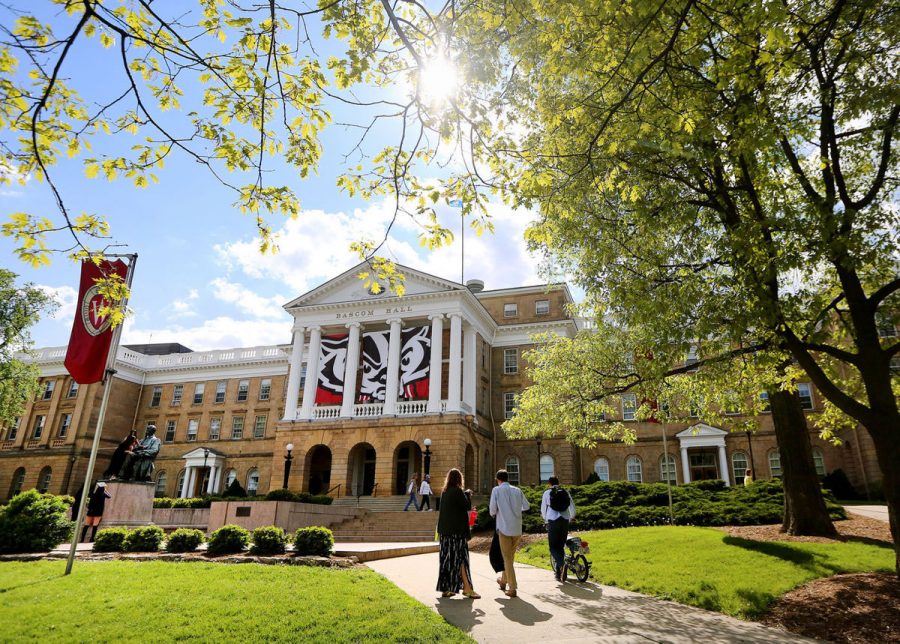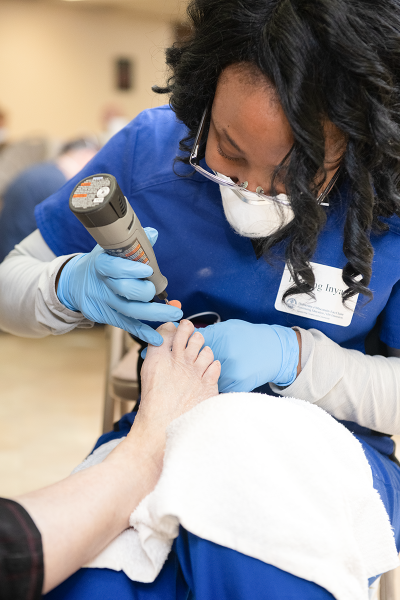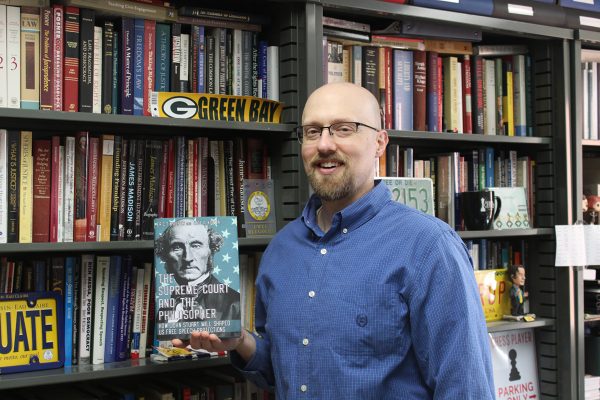Students reject UW-Madison Chancellor’s call for criminal background checks
Chancellor Rebecca Blank wrote to UW System President Ray Cross calling for discussion
More stories from Rachyl Houterman
Photo by Submitted
Chancellor Blank called for background checks after discovering a student at Madison with a history of racially motivated arsons tried to start an Alt-Right group on campus.
UW-Madison Chancellor Rebecca Blank’s recent call for discussion among UW System officials, regarding inclusion of criminal background checks in admissions criterion, is receiving backlash from students who fear it could do more harm than good.
On Jan. 27, Blank wrote to UW System President Ray Cross outlining her concern for students’ safety following the revelation of a Madison student’s criminal background of racially-motivated crimes. The student, Daniel Dropik, was attempting to form a chapter of the American Freedom Party (AFP) on campus, a nationalist party known for promoting white supremacy.
“This raises serious concerns for our campus community,” Blank wrote in her letter to Cross. “I am sensitive to the effect on our students, faculty and staff, especially those of color and of other identities targeted by AFP, given the past conduct of this student.”
In 2005, Dropik, now 33 years old, served about five years in prison after being convicted of racially-motivated arsons of two predominantly black churches in Milwaukee and Lansing, Michigan. He enrolled at Madison in 2013 to study computer science.
“I believe it is appropriate now to engage in a broad discussion with stakeholders about how we balance campus safety,” Blank wrote, “particularly in a time when we are working hard to ensure all students feel welcome and protected, with the rights of students who have committed violent crimes.”
Dropik handed out flyers to students on campus in late January, hoping to recruit students who held the same beliefs. He also created a website, MadisonAFP.org, a recruitment video and the hashtag, “#UWAltRight.”
Currently, the UW System does not require criminal background checks in the admissions process to ensure students who have made mistakes and paid their debt to society will not be prevented from an education.
Blank recognized the importance of maintaining this notion, but said she would like to move forward with a discussion on the matter, which was quickly met with opposition from students.
The Student Coalition for Progress (SCP), a student organization at UW-Madison, expressed concern in a released statement over how the Chancellor’s proposed agenda would discriminate against student applicants based on their criminal history.
“Such a policy will only be used to disproportionately discriminate against non-white students and will only add to racism and inequality on campus,” the statement said.
A petition was created by SCP on Feb. 2, rebuking Blank’s position on criminal background checks being included in admission criterion. The petition currently has 117 signatures with a goal of 200.
The League of Women Voters of Wisconsin also released a statement condemning Blank’s position on the issue, likening it to their opposition of criminal background checks initiated by employers during the hiring process.
“We have consistently advocated that employers should not be allowed to consider criminal records in hiring unless the process unless the offense is related to the work the person would be doing if hired,” their statement reads.
Even so, Blank argued there are risks in remaining “entirely ignorant” of an applicant’s felony record.
UW-Eau Claire Student Body President Ashley Sukhu argued against Blank’s statement, citing the lack of evidence to prove it to be true.
“I’m not sure we’ve seen sufficient evidence of the alternative,” Sukhu said. “We haven’t seen anything that’s proven, to show us the ignorance (of not having) the criminal records.”
Sukhu is also concerned that criminal background checks included with admission applications could be discriminatory against those trying to rehabilitate themselves into society by enrolling in higher education.
“I’d be concerned that a student, similar to when people are trying to get jobs, they feel like they have to lie about that status because they think they’re not going to get a job,” she said.
Katy McGarry, chief of staff for the Eau Claire Student Senate, shared similar views as Sukhu, stating that for those with a criminal history, coming back and going to college is a good opportunity for them to reform and become a part of society, to see other opportunities in life.
Both McGarry and Sukhu acknowledged the reasoning for Blank’s concern as rational, but ultimately disagreed with the idea of having new students fill out a criminal background check when applying for school.
“I think at this point, asking for a criminal background check will really hurt people who are trying to reform themselves,” said McGarry.











Todd • May 3, 2017 at 9:51 pm
It is amazing to see the self destructive actions of the liberal left.. They are so blind to reality, they cannot see they are destroying their own future. Whether it is stopping someone from exercising free speech or stopping someone that committed an offense BUT PAID for it and wants to get more education, liberals really are clueless on what they are doing.